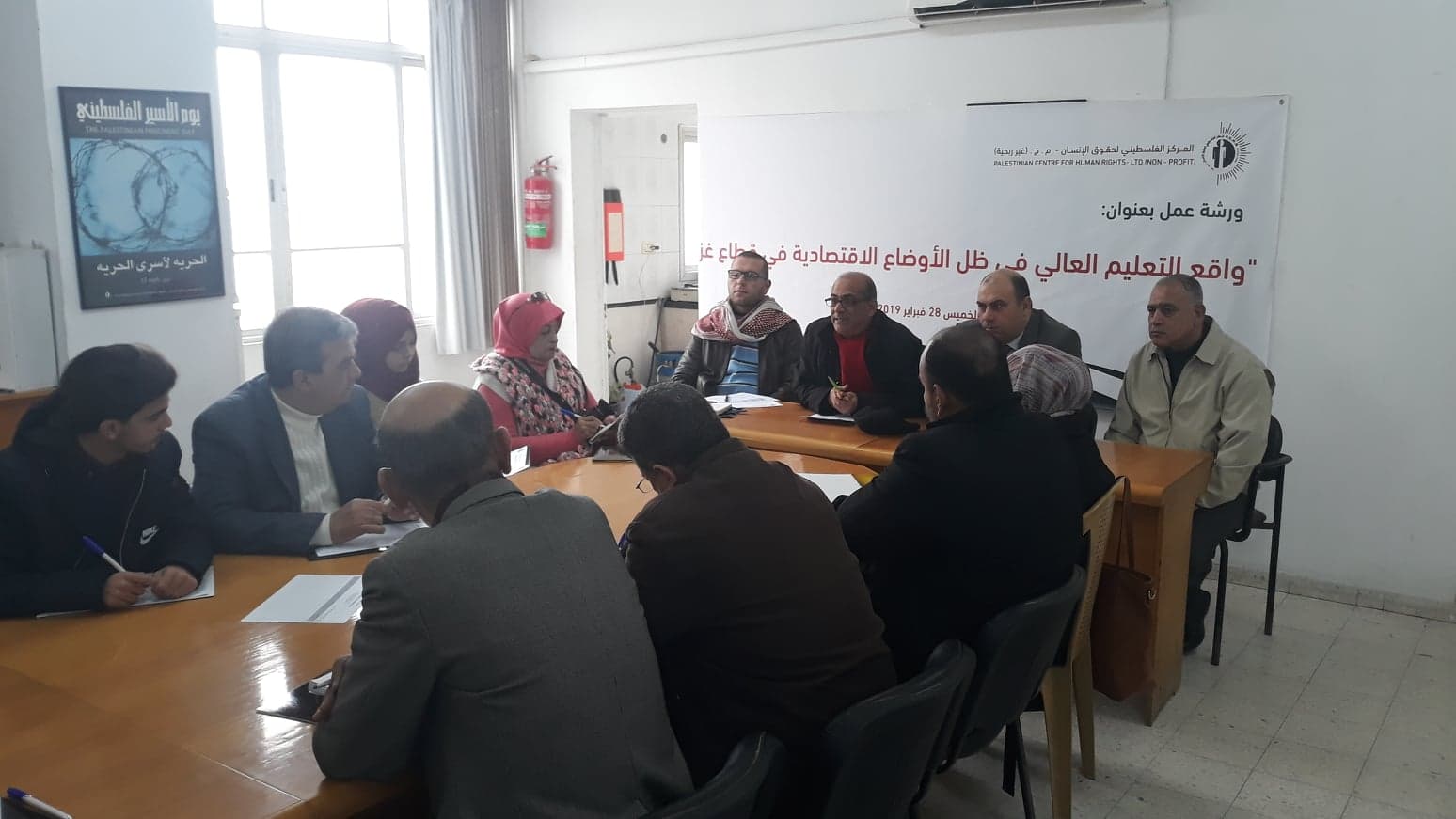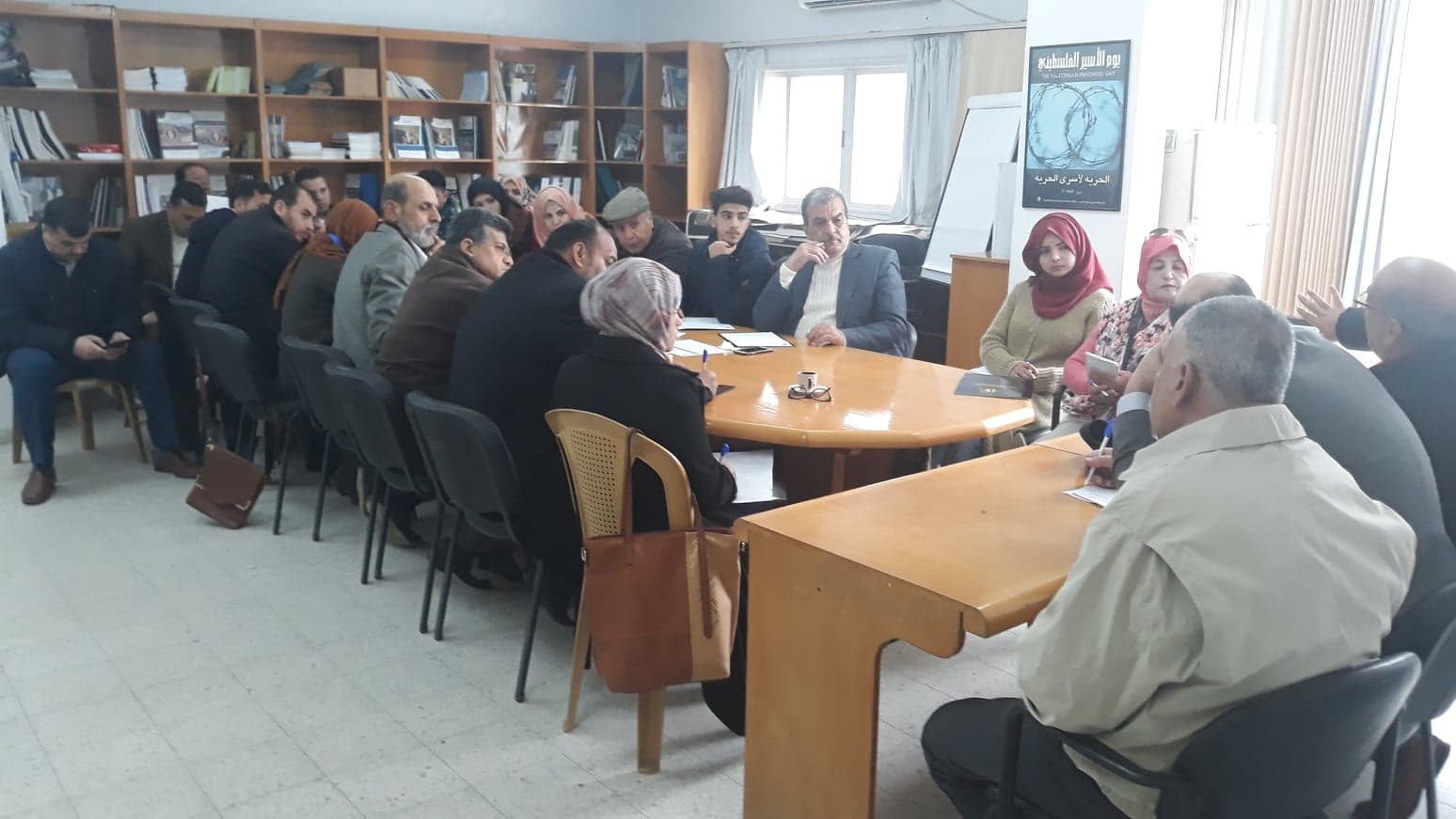
On Thursday, 28 February 2019, the Palestinian Center for Human Rights (PCHR) organized a workshop titled as “Reality of Higher Education in light of the Economic Situation in the Gaza Strip.” The workshop discussed the challenges facing the Higher Education organizations and university students in light of the deteriorating economic conditions in the Gaza Strip. The workshop was attended by experts representing the Palestinian universities, Student unions in the Gaza Strip, civil society organizations and media.
Dr. Fadel al-Muzaini, a researcher in PCHR’s Economic and Social Rights Unit, opened the workshop, emphasizing PCHR’s keenness to follow issues of concern to the Palestinian society. A broad discussion was opened on the status of the economic and social rights in the Gaza Strip.
 In his presentation on the “right to education”, Dr. al-Muzaini said that the International Bill of Human Rights considers the right to education as a fundamental human right and an empowerment right that recognition of other rights depends on its application and respect. Moreover, a number of criteria has been set for education in the International Declaration of Human Rights and International Covenant on Economic, Social and Cultural Rights. Dr. al-Muzaiani added that deterioration of the economic situation in the Gaza Strip has negatively affected the future of the Palestinian university students in the Gaza Strip, including students dropping for being unable to pay their university tuition fees and high school students who are disinclined to joining universities due to the deteriorating economic conditions in the Gaza Strip.
In his presentation on the “right to education”, Dr. al-Muzaini said that the International Bill of Human Rights considers the right to education as a fundamental human right and an empowerment right that recognition of other rights depends on its application and respect. Moreover, a number of criteria has been set for education in the International Declaration of Human Rights and International Covenant on Economic, Social and Cultural Rights. Dr. al-Muzaiani added that deterioration of the economic situation in the Gaza Strip has negatively affected the future of the Palestinian university students in the Gaza Strip, including students dropping for being unable to pay their university tuition fees and high school students who are disinclined to joining universities due to the deteriorating economic conditions in the Gaza Strip.
In his intervention titled as “the economic policies and their impact on Higher Education,” Dr. Bassam Abu Hashish, a Professor of Education at al-Aqsa University, emphasized that the Palestinian Authority stopped supporting the Higher Education in Palestine and allocated the largest share of its budget on the public education and all its stages. Dr. Abu Hashish added that the governmental policies forced the universities to raise the university tuition fees to make up for its financial crisis that negatively affected the number of students enrolled in the governmental and non-governmental universities in the Gaza Strip. Moreover, universities have become a tool for Social stratification which means that only students affording fees can join universities while those not affording do not receive university education. He pointed out that the financial crisis in universities has affected the quality of education and violated the rights of employees, including academics and administrators.
Ahmed al-Qeeq, Coordinator of the Student Unions’ Secretary in the Gaza Strip, highlighted in his intervention titled as “University Students’ Conditions in light of the Economic Situation” the suffering of te Gaza Strip residents and its impact on university students that led to decreasing the number of students enrolled in them and increasing the number of university students who delayed their study as they were unable to register for their economic conditions. He called upon all universities’ administrations to take in consideration the Gaza Strip students’ conditions by not preventing them from entering the exam halls for not paying the tuition fees and ending the restrictions imposed on the re-registration by some universities which oblige students to pay the installments due as a pre-condition to complete their study.
The workshop concluded, and discussions and inquiries were opened by the participants, recommending the following: